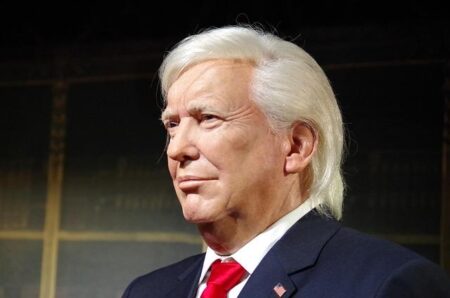Germany’s Social Democrats are grappling with internal dissent as divisions over the party’s stance on Russia come to the fore. The growing mutiny within the SPD highlights deep-seated tensions over foreign policy, particularly in the wake of intensified geopolitical pressures and ongoing conflict in Eastern Europe. This rift threatens to complicate Chancellor Olaf Scholz’s efforts to maintain a united front amid Europe’s shifting alliance dynamics, raising questions about the future direction of Germany’s approach to Moscow.
Germany’s Social Democrats Divided Over Russia Policy Amid Rising International Pressure
Within Germany’s Social Democratic Party, tensions are escalating as members clash over the appropriate stance toward Russia amidst increasing international sanctions and diplomatic pressures. While some party leaders advocate for a firm and unified front aligned with EU and NATO policies, others urge caution, warning that harsh measures could jeopardize critical energy supplies and economic stability. This schism reflects broader anxieties about balancing realpolitik with ethical imperatives in the face of the ongoing conflict in Eastern Europe.
The internal debate centers on several key issues, including:
- Energy Dependency: How to reduce reliance on Russian gas without triggering economic fallout.
- Military Support: Whether Germany should increase arms deliveries to Ukraine, risking escalation.
- Sanctions Strategy: Finding the right level of sanctions that pressure Moscow but limit damage to German industries.
Tensions came to a head during recent parliamentary sessions, where SPD lawmakers expressed sharply contrasting viewpoints, indicating a possible realignment of the party’s foreign policy agenda in the coming months.
| Faction | Position on Russia | Key Concern |
|---|---|---|
| Hardliners | Strong sanctions, increased military aid | Upholding international law |
| Moderates | Cautious engagement, gradual sanctions | Protecting economic interests |
| Pragmatists | Energy diplomacy focus | Ensuring energy security |
Internal Party Critics Demand Harder Stance to Safeguard National Security and European Unity
Key figures within Germany’s Social Democratic Party (SPD) are increasingly vocal in their criticism of the current government’s approach to Russia, arguing that a tougher policy is essential to protect both national security and the cohesion of the European Union. These dissenters warn that perceived leniency undermines Germany’s credibility as a reliable EU partner, especially amid heightened tensions in Eastern Europe. The internal debate exposes growing fractures in the party’s stance on foreign affairs, with some advocating for more aggressive sanctions and enhanced military cooperation within NATO.
Discontented lawmakers emphasize several core demands:
- Stricter economic sanctions targeting Russian energy exports to reduce dependency
- Increased funding for Germany’s defense budget aligned with NATO commitments
- Strengthened EU diplomatic unity to present a united front against Russian influence
- Enhanced intelligence sharing across European security agencies
| Demand | Rationale |
|---|---|
| Economic Sanctions | Reduce Russia’s ability to finance military actions |
| Defense Spending | Meet NATO obligations and deter aggression |
| EU Diplomatic Unity | Avoid fragmentation and strengthen negotiation leverage |
| Enhanced Intelligence Sharing | Improve threat detection and coordinated response among EU members |
Let me know if you’d like me to help with any additional content or formatting!
Experts Urge SPD Leadership to Recalibrate Strategy and Strengthen Transatlantic Ties
The ongoing debate within Germany’s Social Democratic Party (SPD) reveals deep divisions over the current approach to Russia, especially in light of recent geopolitical tensions. Experts argue that the party leadership must urgently rethink its stance to avoid further internal dissent and to present a unified front. Key voices within the party advocate for a more robust policy that prioritizes strategic clarity and realignment with Western allies, warning that failure to do so could undermine both domestic cohesion and Germany’s standing on the global stage.
Central to the discussion is the need to reinforce alliances across the Atlantic. Analysts highlight a series of recommendation points for the SPD leadership to address:
- Enhanced diplomatic engagement with U.S. and EU partners to ensure consistent messaging.
- Revision of energy policies to reduce dependence on Russian resources.
- Strengthening defense cooperation within NATO frameworks.
- Transparent communication to rebuild public trust amidst growing skepticism.
| Strategy Aspect | Current Status | Recommended Action |
|---|---|---|
| Transatlantic Relations | Unsteady | Renew commitment and coordination |
| Energy Dependency | High reliance on Russia | Diversify sources and investments |
| Defense Posture | Conservative approach | Increase joint military efforts |
| Public Messaging | Fragmented | Consistent and transparent communication |
To Conclude
As Germany’s Social Democrats grapple with internal dissent over the party’s stance on Russia, the unfolding debate underscores the broader challenges facing European policymakers amid evolving geopolitical tensions. How the SPD manages this mutiny may well shape not only Germany’s foreign policy but also the future cohesion of the country’s governing coalition. The Financial Times will continue to monitor developments as the situation evolves.




